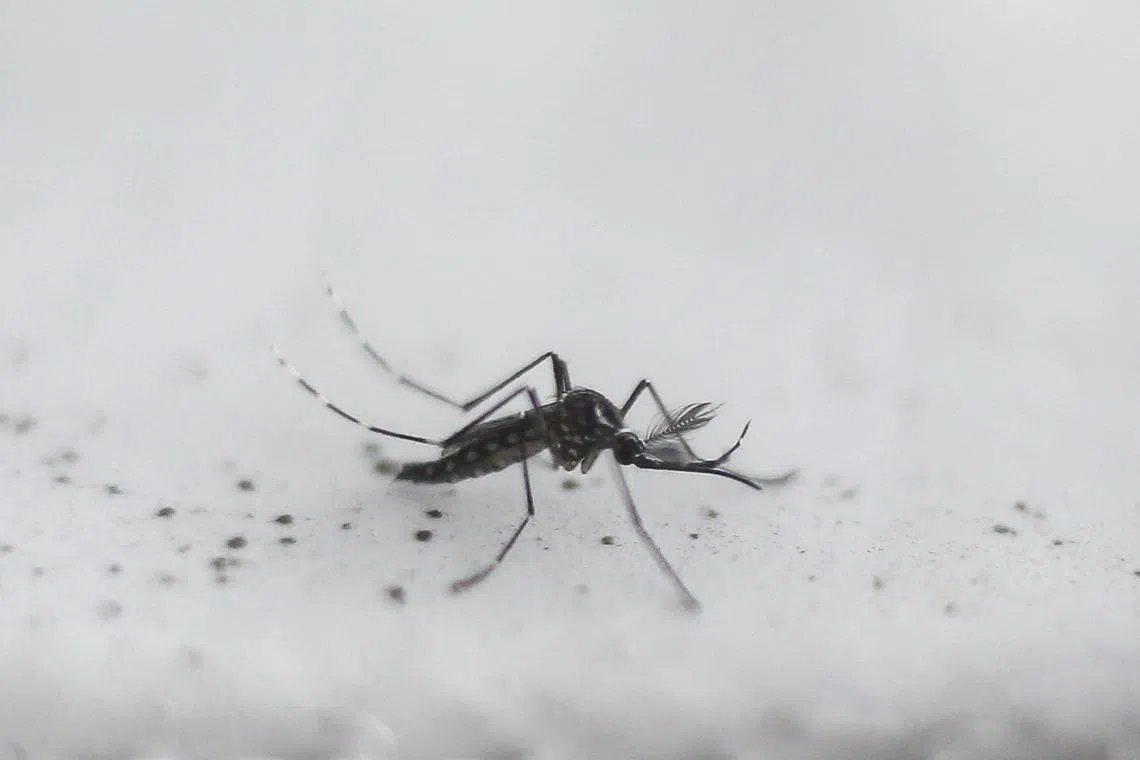Mosquitoes with ‘toxic’ semen could stem disease spread: Research
Sign up now: Get ST's newsletters delivered to your inbox

The “toxic male technique” aims to breed mosquitoes that express venomous proteins in their semen, killing off females after mating.
PHOTO: AFP
SYDNEY - Genetically engineered mosquitoes with toxic semen could be a new weapon against tropical disease, said Australian scientists after trialling the novel pest control method.
The “toxic male technique” aims to breed mosquitoes that express venomous proteins in their semen, killing off females after mating.
Female mosquitoes are targeted because only they bite and drink blood, thereby spreading diseases such as malaria and dengue fever.
Scientist Sam Beach from Australia’s Macquarie University said the method “could work as quickly as pesticides without also harming beneficial species”.
“This innovative solution could transform how we manage pests, offering hope for healthier communities and a more sustainable future.”
The first proof-of-concept trials used fruit flies, a common laboratory species favoured for its short two-week life cycle.
Female flies that bred with “toxic” males had a significantly reduced lifespan, the scientists found.
Researcher Maciej Maselko said the team would now trial the method in mosquitoes.
“We still need to implement it in mosquitoes and conduct rigorous safety testing to ensure there are no risks to humans or other non-target species,” he said.
The mosquitoes would need to be genetically modified so that they expressed the toxic semen only when they were released into the wild, the researchers said.
This could be done through so-called “conditional expression” techniques, which use chemicals or other biological triggers to turn specific genes on or off at will.
This would allow venomous males to successfully mate with females in laboratory conditions, producing enough viable offspring for the technique to be scaled up.
Genetic engineering has been used for years to control populations of disease-spreading mosquitoes.
Typically, these approaches slow reproduction by releasing hordes of male insects that are genetically modified to be sterile.
Computer models showed techniques that actively kill biting females could be far more effective, the research team said.
The research was described in a paper published by peer-reviewed journal Nature Communications on Jan 7. AFP


